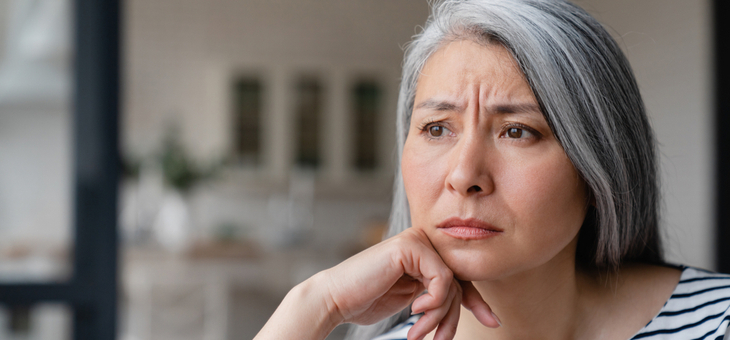While lockdowns continue to be the only lever available to state governments in dealing with the COVID-19 pandemic, there are concerns about what these periods of isolation are doing for the critical thinking abilities of the population.
Australia received mixed news on the lockdown front on Wednesday. Cairns was released from its short, sharp lockdown, but Dubbo was added to the regions with stay-at-home orders in NSW and the situation in Melbourne was extended for a further seven days.
Scientists who have been studying the effects of lockdowns around the world have found that these periods of isolation do make it harder for people to concentrate and can also affect our memory and cognitive abilities. But there are strategies you can adopt in lockdown to lessen these effects.
Read: Why our rapid COVID tests are heading overseas
While there is a lack of data on the Australian experience, Professor Brett Hayes from the University of NSW explained that a study of Italians who were locked down for about two months last year found an increase in distractions and an inability concentrate.
That study found that 30 per cent of 4000 respondents reported experiencing some change in their everyday cognition, including memory problems, trouble in focusing attention and losing focus when trying to read a book or watching something online.
“Literally starting one job and without thinking about it, going off and starting a second job without finishing the first one,” Prof. Hayes explained.
Read: Older Australians may need COVID booster from early next year
“It was also worst for people who had emotional issues, who were feeling depressed, or stressed and anxious, they had more of these symptoms. But even for those without those issues, these cognitive issues were very common.”
The study suggests that the reason why our everyday memory gets worse in lockdown is because each day is so similar, which makes it harder for our brains to lay down memories and retrieve them.
“What we know about human memory is that the context is really important,” Prof. Hayes explained.
Read: Australia’s vaccination plan is too late
“You might be doing a job at home, chatting to a friend, or watching a movie. When we have those experiences, we might be focused on the main part of the experience, but our brain is actually encoding a lot of other things just incidentally, like where that’s happening, the location, where and when it’s taking place.
“So, when the context is changing, which is does normally in everyday life when we are moving around and visiting different places in different times of the day, then it’s easy to lay down memories and recall them.
“But when you are in lockdown, your opportunities to move around in the environment and engage in different activities are very limited.”
This ‘Groundhog Day’ effect of all of your days blurring into one event can scramble both your memory and your sense of time, according to the University of Melbourne’s Adam Osth.
“In lockdown, the events we experience all have more or less the same context,” Mr Osth explains.
“If you’re spending almost all your time in your house, it’s harder to pinpoint individual memories of the things that happened there. It’s like doing a google search where everything matches your search terms.”
A study on a two-month lockdown in Scotland last year provided recipients with online tasks to test their memory, decision making and selective attention. It found that performance on the tasks was poorer during lockdown but the performance improved quickly once the restrictions were eased across the country.
The Scottish study also found that the social interactions were an important part of how well people performed on the tasks.
“People who were able to maintain their online interaction more during lockdown did better at these tasks,” Prof. Hayes explained.
“So complete isolation is really very bad for our cognitive functioning, but if we can keep up that level of interaction to some degree with whoever is in our house or online, that seems to be good for our cognitive functioning.”
Researchers have also found that people who had conversations within the past three days were a bit more protected from cognitive issues during long lockdowns.
How can you protect your memory during lockdown?
Researchers believe trying to exercise every day and have some variation to your routine can help keep your memory in shape.
“From a memory point of view, if you are able to exercise outside the house, vary those exercise paths from day to day to just to allow a different context for your brain to encode those different days, if you want to be able to remember what you did from day to day a bit better,” Prof. Hayes explains.
“Keeping up regular exercise is good to try and keeping our memory and decision making in shape as much as you can during lockdown.”
Prof. Hayes also says that people reported that online yoga and dancing were just some of the things having a beneficial effect on their cognition during lockdown.
“While there hasn’t been time to conduct research on the long-term effects of lockdowns on memory, the evidence so far shows that as restrictions are eased, these cognitive issues should improve,” he said.
Have you had problems with your concentration or memory during lockdown? Did you find that it returned to normal once restrictions were eased again? Why not share your thoughts in the comments section below?
If you enjoy our content, don’t keep it to yourself. Share our free eNews with your friends and encourage them to sign up.

